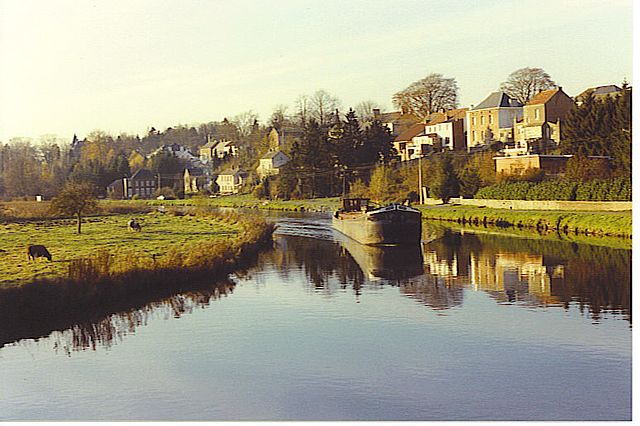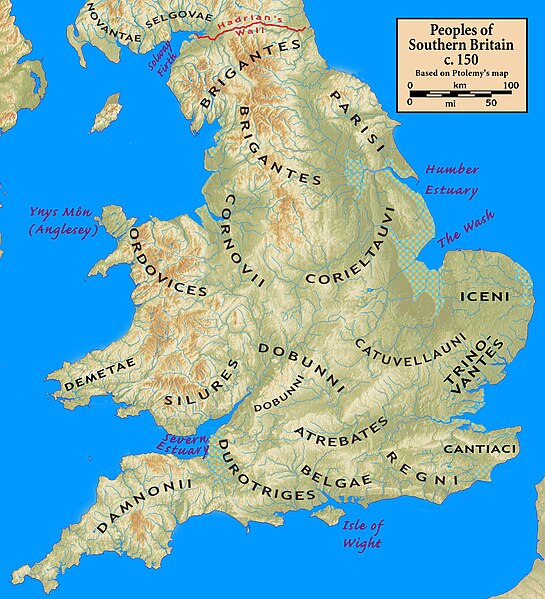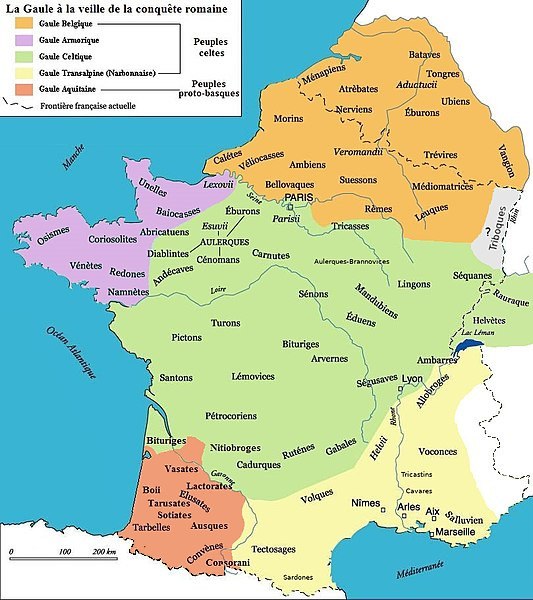The Battle of the Sabis, also known as the Battle of the Sambre or the Battle against the Nervians, was fought in 57 BC near modern Saulzoir in Northern France, between Caesar's legions and an association of Belgae tribes, principally the Nervii. Julius Caesar, commanding the Roman forces, was surprised and nearly defeated. According to Caesar's report, a combination of determined defence, skilled generalship, and the timely arrival of reinforcements allowed the Romans to turn a strategic defeat into a tactical victory. Few primary sources describe the battle in detail, with most information coming from Caesar's own report on the battle from his book, Commentarii de Bello Gallico. Little is therefore known about the Nervii perspective on the battle.
The river Sambre
The Belgae were a large confederation of tribes living in northern Gaul, between the English Channel, the west bank of the Rhine, and the northern bank of the river Seine, from at least the third century BC. They were discussed in depth by Julius Caesar in his account of his wars in Gaul. Some peoples in southern Britain were also called Belgae and had apparently moved from the continent. T. F. O'Rahilly believed that some had moved further west and he equated them with the Fir Bolg in Ireland. The Roman province of Gallia Belgica was named after the continental Belgae. The term continued to be used in the region until the present day and is reflected in the name of the modern country of Belgium.
Belgae
According to Strabo: the Belgian tribes (in orange), including the Armoricani (in purple)



